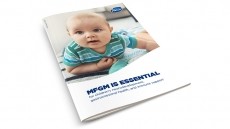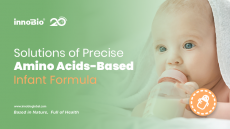L-carnitine supplementation may prevent pregnancy-related declines
Levels of carnitine have already been shown to decrease during pregnancy, while the reason is unknown. The new study suggests that this may be due to decrease in the rate of carnitine biosynthesis, which may be due to an inadequate iron status in the women.
Supplementation with L-carnitine was found to prevent that reduction in plasma carnitine levels that was observed in the women in the placebo group.
In the control group, there was a marked reduction of plasma carnitine concentration from the 12th week of gestation to term. This reduction was prevented by the supplementation of carnitine.
“We’re glad to be the first to show that even with a daily dose of 500 mg L-Carnitine the low plasma levels can be restored in pregnant women,” said lead researcher Professor Klaus Eder from Martin-Luther University in Germany.
Findings of the study, which used Lonza’s Carnipure ingredient and was funded by the Swiss company, are published in the European Journal of Clinical Nutrition.
L-Carnitine, a vitamin-like nutrient, occurs naturally in the human body and is essential for turning fat into energy. It is frequently used as a dietary supplement by physically active people to help with post-exercise recovery.
Lonza, which claims to be the world's largest manufacturer of L-Carnitine, has said that extensive scientific research shows the supplement promotes cardiovascular health and that other studies suggest the nutrient may be useful in weight management.
Study details
The German researchers recruited 26 healthy pregnant women and randomly assigned them to receive either a daily 500 mg L-carnitine supplement as L-carnitine L-tartrate, or placebo from week 13 of pregnancy until the birth of the child.
While the placebo group experienced a reduction in plasma carnitine levels during the course of the study, the women receiving the carnitine supplement did not.
According to Lonza, previous studies have indicated that restoring plasma levels of carnitine via supplementation during pregnancy may also help prevent the development of gestational diabetes, especially in overweight women, by decreasing elevated plasma free fatty acids.
Source: European Journal of Clinical Nutrition
Published online ahead of print,doi: 10.1038/ejcn.2009.36
“Carnitine status of pregnant women: effect of carnitine supplementation and correlation between iron status and plasma carnitine concentration”
Authors: U. Keller, C. van der Wal, G. Seliger, C. Scheler, F. Ropke, K. Eder











